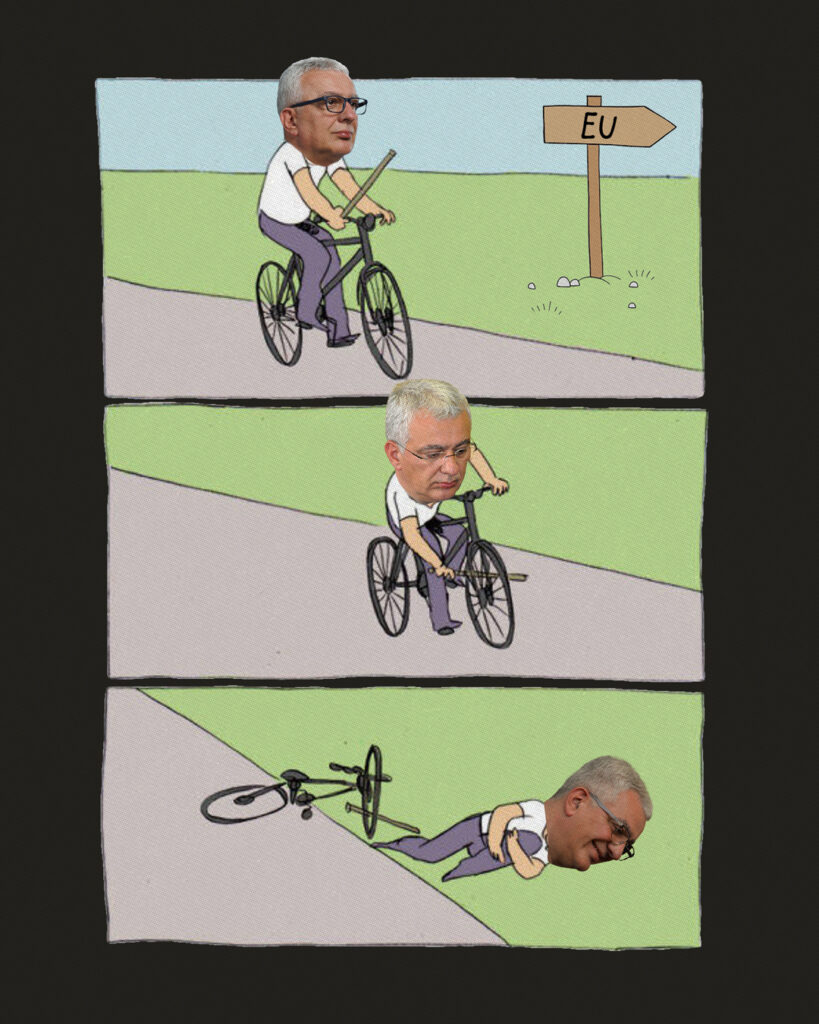Non-governmental organizations active in the media sector submitted an initiative today to the President of the Parliament of Montenegro, urging him to contribute to the implementation of media laws and the appointment of members to the Council of the Agency for Audiovisual Media Services (AVMS).
The NGOs, engaged in media-related issues, called on the President of Parliament to, for the fourth time, launch a public call for the appointment of two members of the AVMS Council, so that the Law on Audiovisual Media Services can finally be implemented.
NGOs urged the President of Parliament to end the obstruction of the Law’s implementation, which has lasted for more than a year. The consequence of such irresponsible conduct by the parliamentary majority, which he leads, may be the reopening of Chapter 10 (Information Society and Media), which was temporarily closed at the end of last year.

It should be recalled that in June 2024, as part of the process of securing a positive IBAR, media laws were adopted with the participation and praise of civil society and the support of the opposition. The parliamentary majority, led by the Speaker, unanimously supported these laws at the time. The only objection from civil society and the opposition concerned the lowering of criteria for the appointing of the RTCG Director-General – from 10 to 5 years of work experience – an initiative introduced at the last moment by Prime Minister Milojko Spajić, clearly aimed at reappointing the same director, despite two final court rulings against his previous appointments, and one first-instance verdict for the third, constituting a serious political and legal compromise. Nevertheless, the adoption of new media laws enabled the temporary closure of Chapter 10 at the end of last year.
The NGOs pointed out that, according to the law, the Speaker should have issued the call for the selection of two Council members in June 2024. However, the first public call was not issued until 10 December 2024. Then, on 24 January 2025, the Speaker annulled it citing a supposed technical error and invoking the initiative of one NGO as justification, which was clearly forced and legally unfounded. A second call was published on 30 January 2025, after reactions from civil society and the EU, but the Administrative Committee unlawfully annulled it in April, claiming the application forms were unclear, although these had been drafted by the Committee itself.
The European Commission and the European Parliament acknowledged this delay and obstruction in their reports. It is evident that the intention is to initiate changes to the procedures for appointing members to the AVMS and RTCG councils, with the ruling majority seeking to maintain political control over institutions that, by law and EU standards, must be independent. Ironically, the same method of appointing politically suitable members was used by the DPS, which the current ruling parties criticized – alongside civil society – when they were in opposition.
Under EU pressure, a third public call was finally issued on 13 May 2025. After reviewing documentation, candidates Dragoljub Vuković (NGO) and Niko Martinović (CANU) met the requirements. Instead of proceeding with their appointments, a so-called “consultative hearing” was held, a procedure unforeseen by the law, as previously pointed out. Later, during a plenary session, the parliamentary majority abstained, once again preventing the Council from being completed. This marked the third time the ruling majority blocked the filling of vacant seats on the AVMS Council.
As a result, the AVMS Council is currently operating with only three of its five members, meaning that decisions can only be made unanimously and under tremendous pressure. This deadlock severely undermines the institution’s capacity to respond to the most serious cases in media regulation, including banning content from Serbia that denies Montenegrin identity, insults minorities, or spreads hate speech against disfavoured by the ruling majority in Montenegro.
The CSOs reminded the President of the Parliament that in early October he must also publish a new call for a Council member from the academic community, as the Law requires the call to be issued six months before the expiration of the current mandate.
They also took the opportunity to inform the President of the Parliament that this initiative will be communicated to the EU Delegation in Montenegro, as well as to EU institutions in Brussels.
“If Chapter 10 is reopened, the responsibility for slowing Montenegro’s European integration and bringing new humiliation to the state before its partners will lie with you, as the President of Parliament and leader of the New Serb Democracy (NSD), along with your parliamentary majority colleagues Milojko Spajić, Milan Knežević, Aleksa Bečić, Vladimir Joković, Ervin Ibrahimović and Nik Đeljošaj,” the letter concludes.
Goran Đurović, Media Center
Olivera Nikolić, Montenegrin Media Institute (MMI)
Daliborka Uljarević, Centre for Civic Education (CCE)
Milka Tadić Mijović, Center for Investigative Journalism (CIN-CG)
Mila Radulović, Association of Professional Journalists of Montenegro
Mustafa Canka, NGO “Ul Info”
Zdravko Janjušević, Bijelo Polje Democratic Center
Željko Đukić, NGO Multimedial Montenegro
Nataša Nelević, NOVA – Center for Feminist Culture
Muamera Muslić, NGO Đakomo Adriatic
Boris Nedović, NGO Center of the North
Radomir Petrić, NGO Sua Sponte Bar
